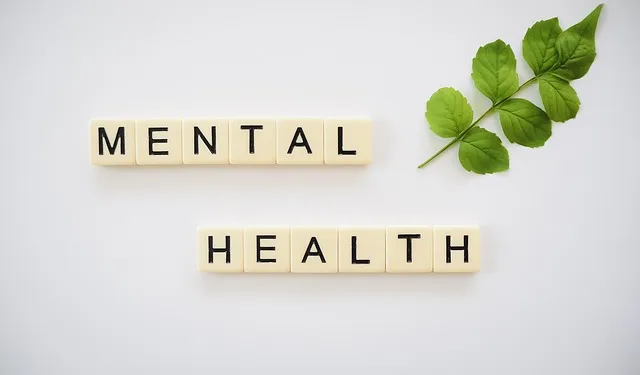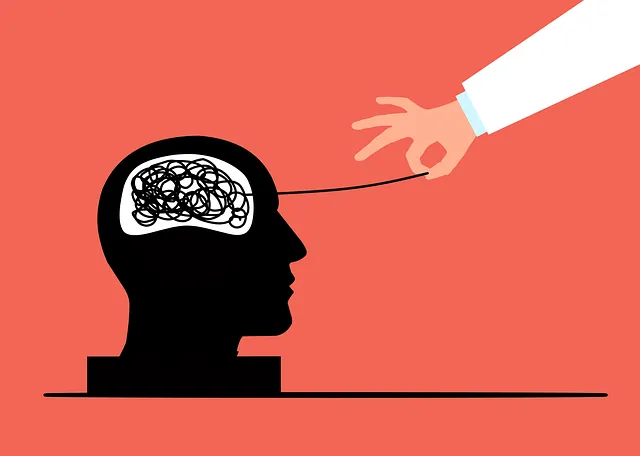The media significantly influences public understanding of mental health, with accurate representations fostering empathy and support while negative portrayals contributing to stigma. Organizations like Kaiser Permanente's behavioral health phone number in Louisville are leading the way by promoting diverse, genuine stories and resources for mental wellness improvement. To reduce mental health stigma, media outlets must move beyond simplistic stereotypes, incorporating real experiences and consulting experts. Encouraging open dialogue, stress management workshops, and accurate depictions create a more supportive society, enabling early intervention and better outcomes.
In today’s media-driven world, the representation of mental illness significantly impacts public perception and understanding. This article explores how media portrayal challenges can be overcome, focusing on strategies for more accurate and empathetic depictions. We delve into the consequences of stereotypes and misconceptions prevalent in popular culture. Additionally, we highlight resources like the Kaiser Permanente Behavioral Health Phone Number Louisville, offering support and guidance. Through media literacy and advocacy, positive change is fostered, ensuring mental health issues are addressed with sensitivity and correctness.
- Understanding the Impact of Media Portrayal on Mental Health Perception
- Identifying Stereotypes and Misconceptions in Popular Culture
- Kaiser Permanente Behavioral Health Phone Number Louisville: A Resource for Support
- Strategies to Enhance Accurate Mental Illness Representation
- Empowering Positive Change through Media Literacy and Advocacy
Understanding the Impact of Media Portrayal on Mental Health Perception

The media has a profound impact on shaping societal perceptions and beliefs about mental health. The way mental illness is represented in movies, television shows, and news articles can heavily influence how the general public understands and responds to these conditions. Often, media portrayals fall into stereotypes or sensationalized narratives, which may perpetuate stigma and misinformed attitudes. For instance, a study by Kaiser Permanente found that positive representations of behavioral health services in media could significantly improve public perception and encourage individuals to seek support.
On the other hand, negative or inaccurate depictions can lead to further marginalization of those living with mental illness. Encouraging mental health awareness through responsible media coverage is essential. This includes showcasing diverse experiences, promoting self-awareness exercises and stress reduction methods, and featuring recovery stories to counterbalance the often-dominate focus on tragedy. By holding media outlets accountable for their portrayals, we can move towards a more nuanced understanding of mental health and inspire positive change, especially when organizations like Kaiser Permanente behavioral health phone number Louisville are leading the way in accessible care.
Identifying Stereotypes and Misconceptions in Popular Culture

In popular culture, mental illness is often portrayed through stereotypes and misconceptions that can be deeply damaging. Movies, TV shows, and even social media platforms frequently depict mental health conditions in a way that reinforces outdated and inaccurate ideas. For instance, common tropes include portraying individuals with anxiety as overly fearful or those with depression as constantly sad, which fails to capture the nuanced experiences of real people living with these conditions. Such simplistic representations can lead to further stigmatization, making it challenging for viewers to empathize and understand the complexities of mental wellness.
This is particularly relevant when considering the impact on audiences seeking support, such as those who might be struggling with their own mental health. For instance, a person experiencing anxiety may internalize these negative portrayals, believing their symptoms are extreme or unworthy of help. Therefore, organizations like Kaiser Permanente behavioral health phone number Louisville play a vital role in countering these stereotypes by promoting accurate representations and providing resources for self-esteem improvement and self-awareness exercises that foster mental wellness.
Kaiser Permanente Behavioral Health Phone Number Louisville: A Resource for Support

In Louisville, Kentucky, individuals seeking support for their mental health can access a valuable resource through Kaiser Permanente Behavioral Health Phone Number Louisville. This dedicated line offers confidential and professional assistance, connecting people to expert counselors and therapists. The service is designed to provide immediate aid and long-term guidance, catering to various mental health concerns and conditions. Whether it’s managing stress, anxiety, depression, or other challenges, the trained professionals are equipped with evidence-based practices to help individuals navigate their mental wellness journeys.
The Kaiser Permanente Behavioral Health Phone Number Louisville not only serves as a crisis intervention but also facilitates coping skills development and promotes mental wellness journaling exercises for self-reflection and growth. By leveraging this resource, residents can benefit from a comprehensive Mental Health Policy Analysis and Advocacy approach, ensuring they receive the necessary support tailored to their unique needs.
Strategies to Enhance Accurate Mental Illness Representation

Media has a significant impact on shaping societal perceptions, especially regarding mental health. To foster understanding and reduce stigma, accurate representation is paramount. Organizations like Kaiser Permanente behavioral health phone number Louisville play a crucial role in promoting awareness and providing resources. By engaging with experts in the field, media outlets can develop more nuanced portrayals of mental illness, moving beyond simplistic stereotypes.
One effective strategy is to incorporate characters with genuine experiences into storylines, allowing for authentic representations. Additionally, educating writers and producers about various mental health conditions through workshops or consultations can lead to more accurate depictions. Promoting emotional intelligence in media personalities further ensures empathetic and respectful portrayal. Encouraging open conversations around mental health, coupled with the sharing of confidence boosting and stress reduction methods, can contribute to a healthier narrative in popular culture.
Empowering Positive Change through Media Literacy and Advocacy

Media plays a powerful role in shaping societal perceptions, and when it comes to mental illness, its influence can be profound. Empowering positive change starts with media literacy—helping individuals navigate and critically analyze content that represents their communities and experiences. By fostering self-awareness exercises and promoting Mind Over Matter principles, we can challenge negative stereotypes perpetuated by the media.
Advocacy efforts, such as those led by organizations focused on stress management workshops, are essential in this process. These initiatives encourage open dialogue about mental health, providing platforms for individuals to share their stories and experiences. Encouraging media consumption that reflects accurate, diverse, and empathetic portrayals of behavioral health can lead to a more supportive environment, like the services offered by Kaiser Permanente behavioral health phone number Louisville. This collective effort can ultimately reduce stigma and promote early intervention, leading to better outcomes for those seeking help.
Mental illness representation in media has a profound impact on public perception and understanding. By identifying and challenging stereotypes, we can foster more accurate and empathetic views of mental health. The resource provided by Kaiser Permanente Behavioral Health Phone Number Louisville offers crucial support for those seeking help. Through media literacy and advocacy, we empower positive change, ensuring that everyone receives the accurate information they need to support their mental well-being or that of a loved one.






